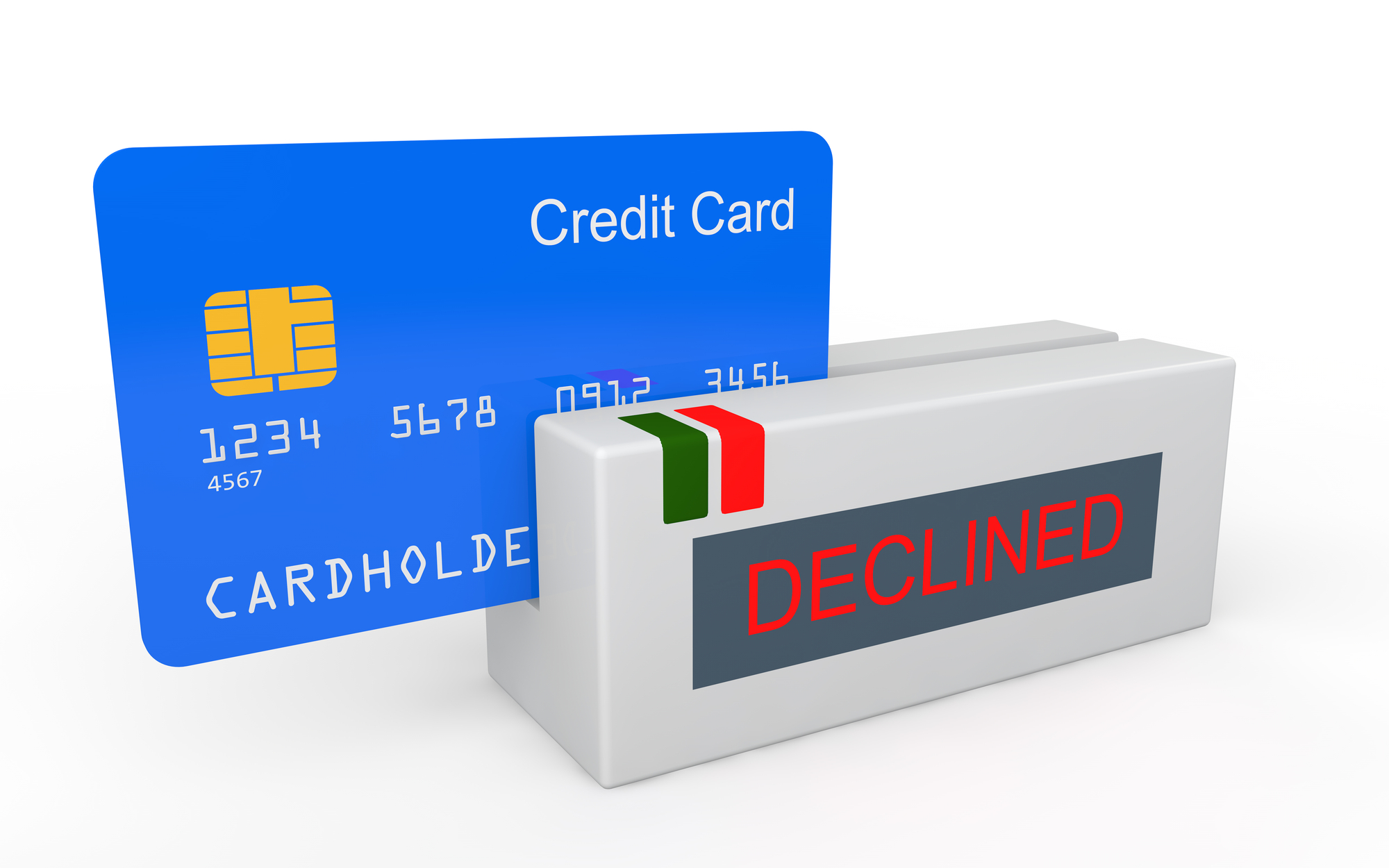
How to Avoid Issuer Declined MCC Errors
Apr 10, 2023 3 minutes
When it comes to accepting credit card payments, there are many factors that can contribute to a declined transaction. One of the most common reasons for transaction declines is an “Issuer Declined MCC” message.
The MCC, or Merchant Category Code, is a four-digit code that classifies businesses into different categories based on the products or services they offer. Each MCC is assigned by payment card networks to enable card issuers the ability to identify the type of business a customer is transacting with.
An “Issuer Declined MCC” message means that the card issuer has declined the transaction due to the MCC associated with the transaction.
In this blog post, we’ll discuss in detail what “Issuer Declined MCC” means, the reasons why they happen, and how merchants can prevent them from occurring. We’ll also delve into the impact of MCC on high-risk businesses and the importance of educating customers on payment security practices. By the end of this post, we hope that merchants will have a better understanding of issuer declines and the necessary steps to take to prevent them.
Reasons Why Issuer Declines Happen
There are many reasons why a transaction can be declined due to the MCC classification, including bank errors, bank override, high-risk merchant categories, and others.
Common Reasons for Issuer Declines
Transactions are declined for many reasons, including those not related to the MCC. However, when it comes to MCC, there are some common reasons why an Issuer Declined MCC error message may occur.
Incorrect MCC Code
One of the primary reasons transaction declines can occur is due to an incorrect MCC code. If the MCC code isn’t correct or isn’t associated with the correct merchant, the payment network may decline the transaction, causing the Issuer Declined MCC error message to appear.
It’s important for merchants to ensure that they have the right MCC code associated with their business and to verify that this information is up-to-date.
High-Risk Merchant Categories
Certain MCC codes are classified as high-risk, which makes approval for transactions in these industries more difficult. Adult content, gambling, and firearms are all examples of high-risk industries.
Even if a transaction is legitimate, banks may decline or restrict it due to the high risk associated with the MCC classification.
Merchant Category Codes (MCC) and Their Impact
Merchant Category Codes (MCC) are four-digit codes that classify businesses into specific categories based on the products or services that they offer. The payment card networks (Visa, Mastercard, American Express, Discover) categorize businesses with MCC codes to help card issuers identify the type of business that is associated with a transaction. MCC codes impact card issuers’ decisions whether to permit transactions or not.
When a customer makes a purchase, the merchant sends the transaction information, including the MCC code, to the payment network. The payment network then passes the information to the card issuer, who decides whether to approve, restrict, or deny the transaction. Card issuers use MCC codes for various reasons, including to determine how a transaction fits within their risk profile.
MCC codes play a significant role in determining the rates that merchants are charged for using payment processing services. For example, merchants in low-risk industries, such as gas stations or grocery stores, may pay lower transaction fees because there is a lower perceived risk compared to high-risk merchants.
On the other hand, high-risk merchants (e.g., adult entertainment, gambling, and firearms) may be subject to higher processing costs or even restricted or declined transactions due to payment networks’ heightened risk management strategies. Merchants in high-risk categories need to work closely with payment networks to understand their MCC classification and take appropriate steps to mitigate declines.
Are you using the right MCC? We can help!
Bank Errors and Declines
Bank errors are another reason why “Issuer Declined MCC” errors can occur. This can happen when the bank’s processing systems have issues, or when there is a technical problem with either the customer’s bank or payment network.
In such cases, the issuer may decline transactions that would otherwise be approved.
Sometimes banks can override a transaction, even though it falls under the MCC category. For example, a card issuer may decline a transaction due to suspected fraud based on the location of the transaction, even if it is within the correct MCC category, invalid card details and a mismatch in card details, or use of a reportedly lost card.
In addition, credit card decline codes can appear due to temporary holds or charges placed on the customer’s card account, which can cause a subsequent transaction to be declined until the hold is lifted. It’s also essential to note that financial institutions limit how much credit can be extended to a cardholder, and a transaction may decline if the cardholder’s credit card limit exceeded it’s value—basically, insufficient funds.
Merchants should stay up-to-date with watchdog groups and industry news that may impact their transaction approvals. By tracking credit card decline codes, merchants can quickly adapt if their customer base is suddenly seeing transaction declines that were not typical.
Additionally, merchants may find that some banks are more likely to decline transactions based on their policies, and they can avoid these issues by limiting support to banks that approve transactions consistently.
Merchant Override Decline Meaning
When a bank declines a transaction for a credit card, debit card or prepaid card, it’s because the issuer has instructed the bank not to approve the transaction based on their internal rules. This can happen if there is suspected fraud or if the transaction exceeds the cardholder’s credit limit, for example.
“Merchant Override Decline” is a more nuanced version of an “Issuer Declined MCC”. When a merchant or payment processor receives a Merchant Override, it means the payment is declined by the payment network, even if it would otherwise be permitted based on the MCC code. Instead of a decline message, it’s marked as a decline somewhere within a card issuer’s system.
Merchant Override is an uncommon error, but it can occur when a merchant is processing a prepaid or gift card transaction. In such cases, the card issuer may have internal rules in place to decline prepaid or gift card transactions across a specific merchant category or exceed specific transaction amounts.
To address Merchant Override Declines, merchants can block cards in the payment panel to prevent transactions from going through, or contact payment networks directly to see if the card can be managed outside the typical framework that the payment gateway offers.
Credit Card Decline Codes and What to Do
Each credit card provider has its unique language, messaging, and reason codes, making it challenging to provide a definitive guide for what to do when transactions declined.
However, there are some best practices that merchants should follow to ensure they can process transactions successfully.
Contact the Customer
If a transaction has been declined, the merchant should contact the customer as soon as possible to resolve the issue. The customer can request that their bank approves the transaction when they retry..
Verify Information
Merchants should verify with the customer that the AVS billing address verification and expiration date are correct, and the three or four-digit number CVV security code is accurate. Small details can make a big difference in ensuring that payments go through reliably.
Try a New Card
Merchants should have a backup plan to get customer’s to try another card, to assure the correct card number or confirm they aren’t using a stolen card, or suggest another payment method to limit the number of declines on specific credit cards.
Work with a Payment Processor or Gateway
Working with a payment processor or gateway can simplify the process of handling credit card decline codes. Payment processors have tools for managing the risk, reducing the likelihood of false negatives, and making it easier for the merchant to manage risk factors.
By having a strategy for when declines happen, merchants can ensure that they continue to accept credit card payments reliably.
Inundated with declines? Let’s check your payment processor.
Solutions to Prevent Issuing Bank Declines from Occurring
To prevent “Issuer Declined MCC” from occurring, merchants must be proactive about implementing effective risk management strategies, utilizing fraud prevention tools, and educating customers on payment security practices.
Implement Proper Risk Management Strategies
Merchants must have a risk management plan in place to address MCC classification and card network restrictions. Strategies that can be implemented include finding ways to improve payment processing speed, reviewing payment approval processes and categorization, and establishing communication channels with credit card issuers.
Merchants should consider setting transaction limits, restrict sales to pre-approved customers, perform instant verification through automated routines, and reduce the gender and age impact of certain predetermined MCC codes.
Utilize Fraud Prevention Tools
Fraudulent activity is one of the main drivers of “Issuer Declined MCC” resulting from MCC classification. To minimize this risk, merchants must use robust fraud prevention software that leverages high-quality algorithms to detect fraud patterns and thereby enhance payment approval rates.
Fraud prevention approaches might include biometrics, real-time account authentication, security tokens, or software applications. It would help if you assessed the pros and cons of each approach based on the risk profile of your business and implement the best fraud prevention tool for your specific risk exposure.
Educate Customers on Payment Security Practices
Educating customers on payment security practices can also help merchants prevent declines. Merchants can provide clear and concise instructions on the importance of updating their accounts with all the necessary information, including the correct billing information and security codes.
Additionally, making sure customers are aware of cybersecurity threats, such as phishing scams or fake websites, can help reduce the risk of fraudulent transactions. Creating a customer loyalty program within the payment platform can win customer trust and encourage more successful transactions.
By implementing these strategies, merchants can vastly reduce the number of “Issuer Declined MCCs” resulting from payment network restrictions, fraud detection tools or bank errors, minimize fees and improve transaction processing rates, which benefits both the merchant and customers.
Have a High-Risk MCC? There’s A Solution for You.
MCC codes represent a critical factor in the payment processing landscape, particularly for merchants classified as high-risk. Merchants must understand the significance and implications of MCC coding to minimize their payment processing costs, prevent fraud and chargebacks, and ensure successful transactions.
We hope this article has given you valuable insight into how MCC codes can affect merchant businesses. If you are a high-risk merchant looking for a safe, secure, and reliable payment processor, opening a high-risk merchant account is your best solution.
Our experienced team of advisors will be able to assist you in navigating the complexities of payment processing for your business.
DECLINES SUCK — AVOID THEM WITH A HIGH-RISK MERCHANT ACCOUNT




